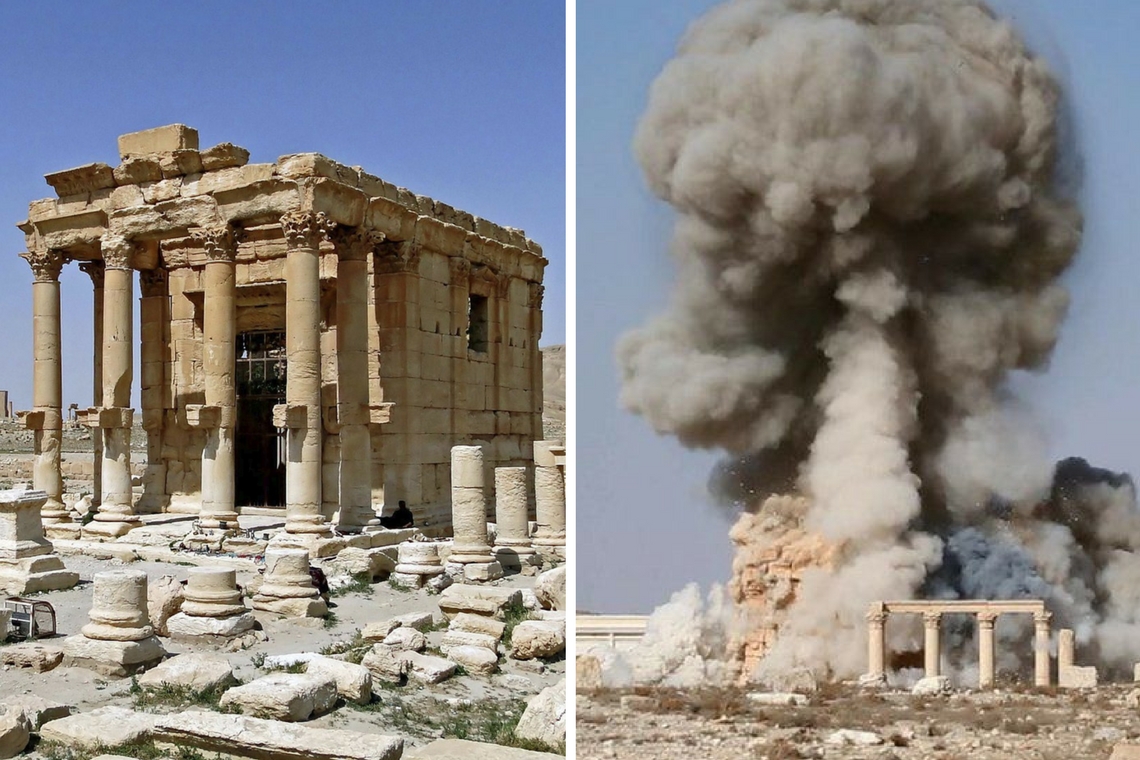Since 9/11, Archaeologists Struggle to Work Safely
Carla Antonaccio on ancient archaeological sites that have become battlefields
The 9/11 terrorist attacks put a lot of archaeologists out of business.
The attacks of 15 years ago, subsequent military responses in Afghanistan and Iraq, and later-still terrorist uprisings in Syria and Libya have rendered broad swaths of the Middle East and parts of northern Africa simply too dangerous for scholars to work, says Carla Antonaccio, an archaeologist and Classical Studies professor at Duke. The result: a lot of historic land ravaged and buried artifacts dug up and hocked for profit.
“Work in any of these places for archaeologists of any nationality is basically impossible; It’s dangerous; people can’t work there,” Antonaccio says. “It’s a disaster on every level.”
The 9/11 attacks set off a series of events that have affected the market for, and safeguarding of, antiquities to this day, Antonaccio says. Western troops on the ground in Iraq and Afghanistan were urged, and took precautions, to avoid turning historically significant archaeological sites into battlefields. But Saddam Hussein and, more recently, the Islamic State have had no such qualms. Hussein safeguarded his weapons in areas he knew western forces wouldn’t bomb; ISIS has allowed the excavation of archaeological sites in areas it controls, but demands a cut of the profits gleaned from the sale of discovered antiquities.
And ISIS forces have commandeered historically significant sites like Palmyra in Syria as backdrops for torture and beheadings beamed across the world on YouTube.

(The Temple of Baal-Shamin in Palmyra, Syria, before and after it was destroyed by ISIS. Photos courtesy Bernard Gagnon, BBC News)
“Iraq used soccer stadiums for mass executions and we thought that was bad,” Antonaccio says. “But to do it in an intact Roman theater is a different type of outrage.”
Another complication for the archaeology world is the already complex concept of cultural patrimony -- the way experts figure out the proper ownership of an unearthed antiquity. A rare vase recovered in Syria, for example, and later discovered in a museum in the United States should perhaps be returned to Syria. But what happens when there’s no strong nation-state trustworthy enough to turn the artifact over to?
“It goes to the values that the idea of cultural patrimony is based on,” Antonaccio says. “If a culture doesn’t respect values of history and ownership, what do you do? All that was up for grabs in Afghanistan under the Taliban, and now in places like Syria and Iraq where ISIS is in control.”